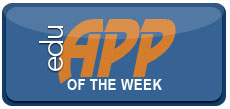
Humor in the Classroom: 40 Years of Research
You have to admire scholars willing to look at 40 years of research on any topic, and this particular review is useful to faculty interested in understanding the role of humor in education. It starts with definitions, functions, and theories of humor. It identifies a wide range of different types of humor. It reviews empirical findings, including the all-important question of whether using humor helps students learn. And finally, this 30-page review concludes with concrete advice and suggestions for future research. It’s one of those articles that belong in even modest instructional libraries—imagine having to track down the better-than-100 references in the bibliography.




